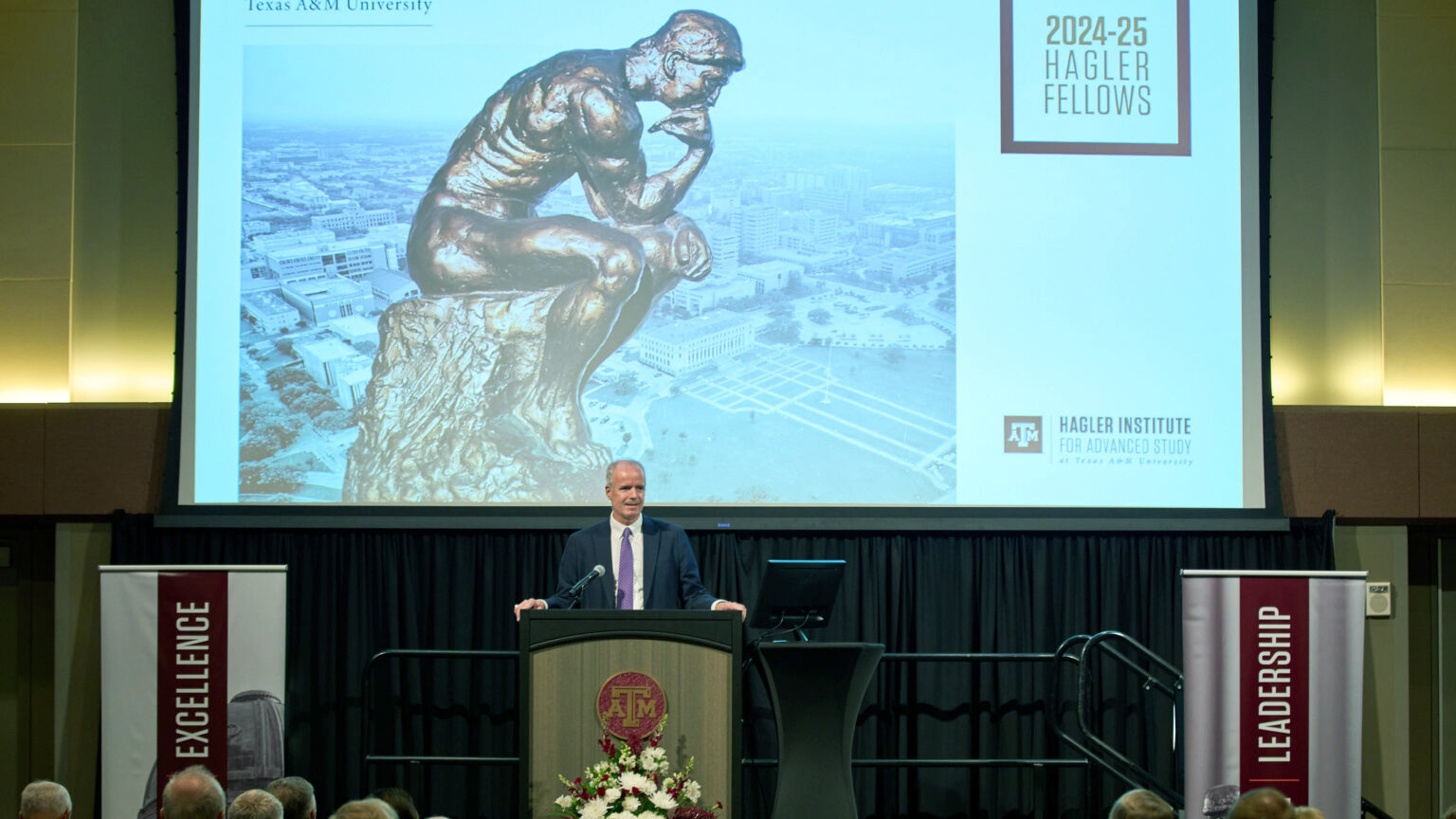
The Hagler Institute for Advanced Study at Texas A&M University has unveiled its 19-member class of 2024-25 Hagler Fellows, including six who will be affiliated with the College of Arts and Sciences.
The 2024-25 class, announced September 23, is the largest in the Hagler Institute's 14-year history. Each is a member of the National Academies or equivalent organizations and recognized for outstanding achievements in their fields. The fellows will work closely with Texas A&M faculty and students during their appointments, which generally last up to one year.
“These scholars are at the forefront of their disciplines and will make a profound impact at Texas A&M,” said Hagler Institute Founding Director Dr. John L. Junkins. “Their contributions will drive innovation, mentorship and academic collaboration, elevating our university’s research environment and enhancing the student experience.”
Since its inception, the Hagler Institute has invited 146 world-class researchers to the Texas A&M campus: 135 Hagler Fellows and 11 Distinguished Lecturers. Of these, 16 have joined Texas A&M’s faculty.
The College of Arts and Sciences will host or be affiliated with six of this year's 19 internationally renowned scholars, including:
- Susan C. Alberts, Robert F. Durden Distinguished Professor of Biology and Evoluntionary Anthropology, Duke University: Alberts is recognized for her work in behavioral ecology, physiology and genetics of wild populations of large mammals. She directs one of the longest-running studies of wild primates globally. Alberts is a member of the National Academy of Sciences and the American Academy of Arts and Sciences.
- James O. Berger, Arts and Sciences Distinguished Professor Emeritus of Statistics, Duke University: Berger is recognized for his work in Bayesian statistical analysis, decision analysis and uncertainty quantification. He is a member of the National Academy of Sciences and the Spanish Real Academia de Ciencias.
- J. Gary Eden, Intel Alumni Endowed Chair Emeritus, University of Illinois Urbana-Champaign: Eden is recognized for his contributions to laser physics and photochemistry, including the development of excimer lasers and high-power UV/VUV lamps. He is a member of the National Academy of Engineering and a fellow of Institute of Electrical and Electronics Engineers and the American Physical Society. Eden will collaborate with faculty and students in the Institute for Quantum Science and Engineering.
- Alexei V. Filippenko, Distinguished Professor of Astronomy, University of California, Berkeley: Filippenko focuses his research on supernovae, black holes and the accelerating expansion of the universe. He is a member of the National Academy of Sciences and the American Academy of Arts and Sciences.
- Marsha I. Lester, Christopher H. Browne Distinguished Professor of Chemistry, University of Pennsylvania: Lester is known for her research on chemical reactions involving hydroxyl radicals, with applications in atmospheric chemistry. She is a member of the National Academy of Sciences and a fellow of the American Academy of Arts and Sciences.
- Jeffrey R. Long, C. Judson King Distinguished Professor, University of California, Berkeley: Long focuses on developing innovative materials for clean energy, particularly metal-organic frameworks for carbon dioxide separation. He is a member of the National Academy of Sciences and the American Academy of Arts and Sciences. In addition to the College of Arts and Sciences, Long will collaborate with faculty and students in the College of Engineering.
The Hagler Institute will officially induct its Class of 2024-25 Hagler Fellows during its annual gala in February.
To learn more about the Hagler Institute, visit https://hias.tamu.edu/.
